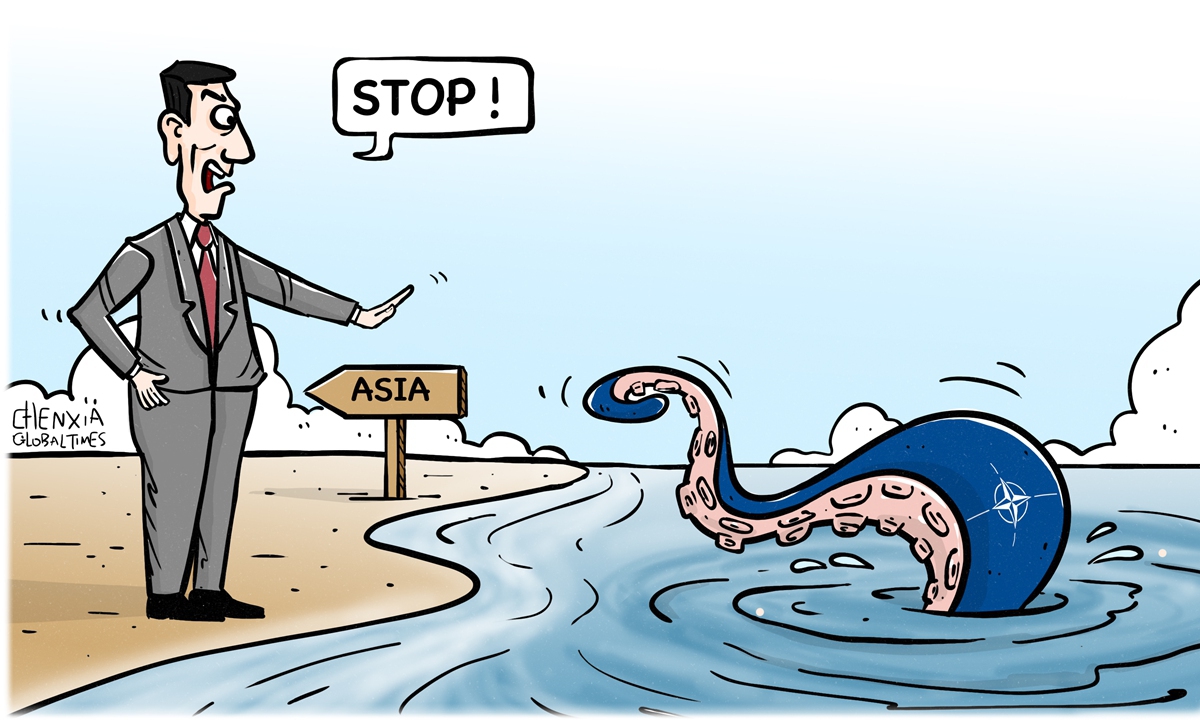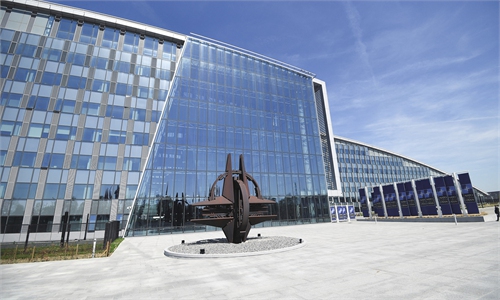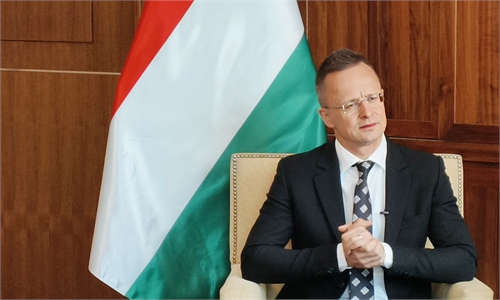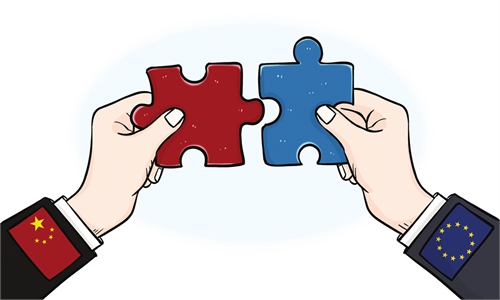
Illustration: Chen Xia/Global Times
Recent months have seen signs of increased activity in the Asia-Pacific by European members of NATO such as the UK, France, Germany, Italy, Spain and the Netherlands: Conducting joint military exercises, sending military vessels to the South China Sea and even sailing through the Taiwan Straits in a provocative manner. This has added tensions to a region which is relatively peaceful compared with other parts of the world ravaged by conflict and war.
As the Ukraine crisis drags on, Europe finds itself more dependent on security guarantees from the US, which would not be granted for nothing. Seeing China as its most serious competitor, the US keeps pushing its allies to join its geopolitical maneuvering in the Asia-Pacific. The pressure on Europe is manifesting and growing.
In fact, it is dangerous for Europe to follow that line at a time when the credibility of the US is in question. The US presidential candidate Donald Trump once said he could end the conflict in Ukraine in one day. People familiar with the situation could tell what that means, "America first."
The core of US foreign policy is to make America, not Europe, great again. If the democrats stay in power, peace will remain elusive and Europe will continue to bleed, without making serious efforts to building a new security architecture for Europe.
It would be an even bigger mistake for European countries to play the "Taiwan card" to please their transatlantic ally. It is clear to all that the Taiwan question is at the very core of China's core interests, and the one-China principle is the political foundation of diplomatic relations between China and European countries. With a trade volume of more than $780 billion and two-way investment stock exceeding $250 billion, Europe would not want to make China its enemy. "Taiwan independence" is the biggest threat to peace and stability across the Straits. To avoid a catastrophe in the most consequential region, Europe must respect China's sovereignty and territorial integrity, refrain from interfering in the matter, and oppose "Taiwan independence."
The ongoing moves by the European countries also contradict the stated purposes of their "Indo-Pacific strategies." They say they are committed to peace and prosperity in the region but military vessels are sent. They say they are upholding the freedom of navigation, but it is never an issue in the South China Sea, the safest and freest sea area in the world.
Furthermore, NATO is not a guest welcomed by the Asia-Pacific. As a product of the Cold War, NATO clings to the philosophy of bloc confrontation, instead of contributing positively to world peace. Former ambassador of Singapore to the UN Kishore Mahbubani was clear about the danger that NATO poses. He said that since the end of the Cold War, NATO has dropped a massive amount of bombs on many countries and many of the bombing missions were illegal under international law. And now NATO is pushing toward the Asia-Pacific, a peaceful and prosperous region way beyond its geographical boundary. Countries in the region have long developed their own way to address differences, and there is no need for intervention from the outside. Having made great efforts to uphold peace and stability, regional countries do not want NATO bringing chaos and conflict, which is what it usually does.
NATO uses the "China threat" theory to justify its move toward the Asia-Pacific. Labeling China as a threat goes against the reality and it is also counterproductive for NATO, especially its European members.
China has played a constructive role in promoting peace in both Ukraine and the Middle East. Should Europe want a constructive relationship with China, it needs to recognize China's contributions and change the way it treats the country. Europe has already lost Russia as a major energy supplier, and losing China as a major market and cooperative partner is not a desirable scenario.
A peaceful and stable Asia-Pacific is in the interests of all. It is important that the European members of NATO reconsider the direction for the alliance. Now is a moment that matters for the course of history. A volatile world as we see today cannot afford to make any more mistakes.
The author is an observer on international affairs. opinion@globaltimes.com.cn



